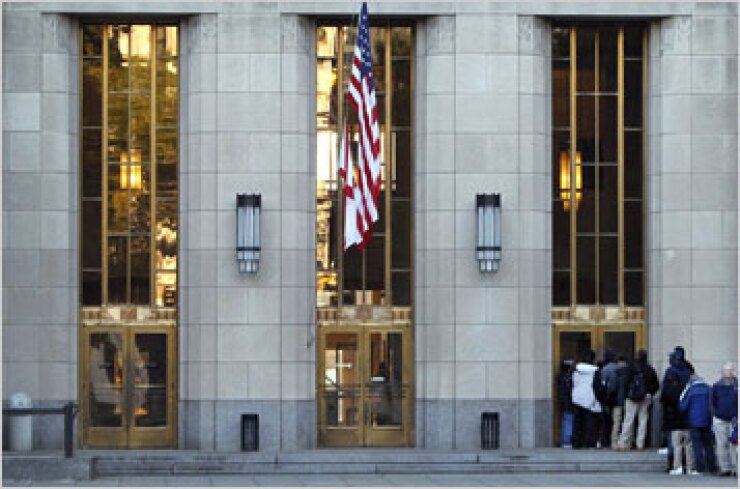
BRADENTON, Fla. — The restructuring plan proposed by bankrupt Jefferson County, Ala., represents a novel approach in public finance in that it anticipates issuing new bonds to redeem defaulted ones at a loss to investors, according to Moody's Investors Service.
The same approach is being pursued in bankrupt Detroit as well as Harrisburg, Pa., which is using the same tactic in a financial recovery plan, Moody's said Monday.
Jefferson County, which filed for Chapter 9 bankruptcy in November 2011 with $4.1 billion of debt, announced last week that the previously announced restructuring plan for its sewer warrants had become economically infeasible. That planned called for issuing $1.8 billion of new sewer warrants to redeem $3.2 billion of the outstanding debt.
While investors holding the sewer warrants already agreed to about $1.3 billion in haircuts in May, the refunding proposed for later this year is unworkable "in part because benchmark municipal interest rates have gone up about 100 basis points since early June," said Moody's analyst Dan Seymour.
County officials have said that $350 million of additional concessions are necessary to make the deal work, and are prepared to reject agreements that support their own bankruptcy exit plan.
"The credit-negative concessions would impose approximately 10 cents of additional losses," Seymour said. "An aggregate recovery of less than 50 cents on the dollar would be well below the average recovery of almost 80 cents on the dollar for defaulted municipal bonds since 1970."
Seymour said other defaulted issuers currently working on restructurings also suggest recoveries that are potentially lower than historical averages, including Detroit, Stockton, Calif., and Harrisburg.
"Jefferson County's restructuring plan represents a novel approach in public finance: issuing new bonds to redeem defaulted ones at a loss to bondholders," he said. "This strategy for exiting bankruptcy relies on accessing the market to fund bondholder recovery.
"When interest rates increase, as they have since the county's initial proposal in June, it becomes more difficult to raise a sufficient amount of new funding in the bond market."
Jefferson County's transaction was structured to withstand an interest rate increase of 50 basis points, but when interest rates rose by more than that, the deal no longer produced the recovery that creditors had agreed upon with the county, Seymour said.
County officials plan to meet with creditors the next two weeks to resume negotiations over their losses.
The county had negotiated consensual haircuts from investors in the debt-laden sewer system ranging from 31 cents on the dollar for JPMorgan, the largest creditor, to 80% for most investors, including hedge funds.
Jefferson County has said publicly that if additional concessions are not granted they will consider imposing them without the support of creditors. A confirmation of the bankruptcy plan of adjustment is currently scheduled Nov. 4.





